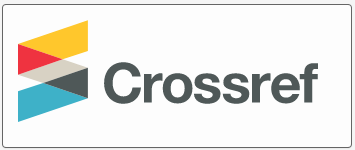Information Technologies and Manipulations of The Russian Propaganda In The "Ldnr" Editions
DOI:
https://doi.org/10.52340/isj.2022.24.04Abstract
The information component is one of the main means of influence in the complex of so-called hybrid wars waged against independent states in the post-Soviet space by Russia.Information-semantic "formatting" of mass consciousness, public opinion and people's moods with the help of information management, manipulative technologies of influence is a priority in the activities of Russian propagandists and in the occupied territories of Ukraine. In our study, we tried to trace the use of such technologies in print and, to some extent, other mass media of the self-proclaimed “republics” of Donbass – the “LPR” and “DPR”. The sources for the thesis analysis were the publications of periodicals annexed and created by Moscow propagandists for 2017: XXI Century, Unity, Cossack Bulletin, Express News, Life of Lugansk, Respublika, Novorossiya, "Donetsk Republic", "Makievsky Worker of the DPR", "New Luch", "Enakievsky Worker", "Kochegarka", "Gorlovka. Today”, “World of News”, “Express Club”, as well as materials from online publications, programs and broadcasts of local radio and television.The media of the occupied areas of Donbass is a training ground and at the same time a kind of guide to the use of information manipulative technologies of influence, the use of propaganda tools. A proven technology is, in particular, the creation of a cult of personality - the image of a leader, the "father of the nation", who is worshiped and followed, whose opinion and decision should not be questioned. Such examples of indestructibility and courage, wise and far-sighted leaders in the publications of the so-called "DNR" and "LNR" appear all the leaders of the "republics", replacing each other from time to time. Also, according to the patterns of propaganda, those who are removed from power for one reason or another are obstructed in order to raise new leaders.
Downloads
References
Бондар Ю. В. Третя комунікаційна. Розвиток видавничої справи в процесі суспільно-політичних трансформацій Новітнього часу : монографія / Ю. В. Бондар [зха заг. ред. В. В. Різуна]. Київ : ДП «Вид. дім «персонал», 2018. – С. 319 – 320; Рудюк С. Як створити образ ворога? Україна в російських підручниках / Сергій Рудюк // День. – 2011. – 18 верес.
Бондар Ю. В. Третя комунікаційна. – С. 206 – 208.
Бондар Ю. В. Четверта українська. – С. 420 – 421.
Барбашов В. Этот День победы «новичком» пропах: гібридна війна / Володимир Барабашов. – Електрон. ресурс. – Режим доступу: https://glavcom.ua/country/society/etot-den-pobedy-novichkom-propah-655469.html; Бондар Ю. В. Третя комунікаційна. – С. 72 – 81; Павлюк Л. Знак, символ, міф у масовій комунікації / Л. Павлюк. – Львів : ПАІС, 2006. – 120 с.
Окупанти випустили підручник з «історії ЛНР від найдавніших часів» // Главком [Електрон. ресурс] . – Режим доступу: https://glavcom.ua/news/okupanti-vipustili-pidruchnik-z-istoriji-lnr-vid-naydavnishih-chasiv-680334.html










